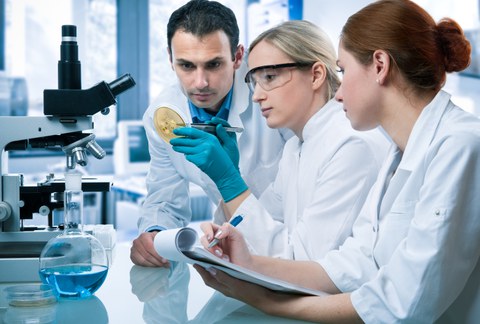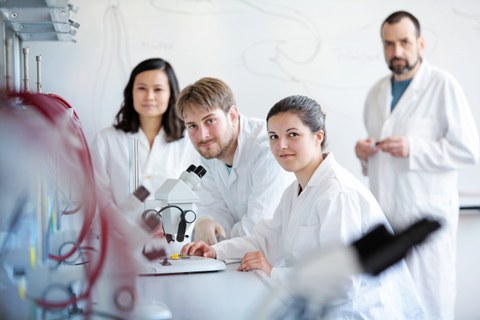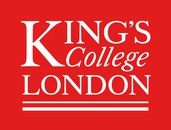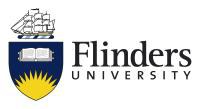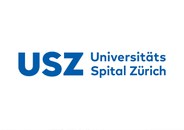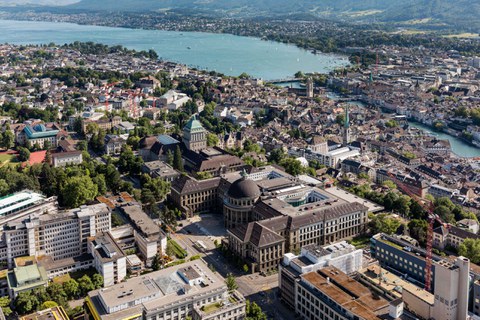International Cooperations
Explore the world of the Faculty of Medicine, where over 800 international collaborations build bridges across continents. The Department of Science Support and International Collaborations maintains a large number of collaborations with renowned universities worldwide.
This global orientation creates an ideal environment for a diverse research community and significant innovations in the School of Medicine.
As part of our internationalization strategy , we establish valuable collaborations in a targeted manner to attract top talent from around the world and promote interdisciplinary cooperation.
These collaborations are transforming our Carl Gustav Carus Faculty of Medicine into an international campus that is ideally suited to the needs of a diverse research community. Thanks to these links, we remain a highly regarded scientific center with excellent research opportunities for international talent. In particular, four main groups at our faculty benefit from these partnerships:
There is a long-standing tradition of cooperation and exchange between scientists at the Carl Gustav Carus Faculty of Medicine and our partner universities.
The transCampus network, a unique European project for international research cooperation, has been in place since 2015.
There is also cooperation in the form of three graduate colleges:
- IRTG 2773 - Risks and Pathomechanisms of Affective Disorders
- IRTG 2251- Immunological and Cellular Strategies in Metabolic Disease
- IRTG 3019 - Metabolic and Endocrine Drivers of Infection Susceptibility
We are pleased to carry out scientific projects in collaboration with the listed cooperation partners. Our partners come from different fields and contribute to the diversity and depth of our research. If you are interested in a collaboration or would like to learn more about our scientific projects, please do not hesitate to contact us. Together we can realize innovative ideas and gain new insights.
For prospective scientists, we offer a wide range of opportunities for doctoral studies and further scientific training at TU Dresden in cooperation with our partner universities. Our programs and projects are aimed at physicians as well as young researchers from other disciplines.
One option is the binational doctoral procedure for doctors. This procedure offers numerous advantages: you will be scientifically anchored in two countries, can work better on a binational research topic and increase your chances of international publications. This will benefit you when you start your career.
In addition, our International Research Training Groups (IRTGs) offer outstanding opportunities for doctoral students leading to two degrees. (see Scientists)
If you have any questions or would like to find out more about our international doctoral and research programs, please do not hesitate to contact us!
We are constantly working to increase the number of our outgoing and incoming students. Our outgoing students usually spend part of their practical year at one of our partner universities. Our incoming students can choose between clinical and scientific stays, with programs varying depending on the cooperation partner.
Find out more about our exchange programs for the internship year on the corresponding study websites. You can find the announcements for the exchange places in the internship year in the ePortal.
For more detailed information and questions about outgoing students, please contact Ms. Schramm at the International Office.
Information for incoming students can be found here.
Do not hesitate to get in touch with us!
In cooperation with our renowned partner universities, we offer you the opportunity to network with colleagues from all over the world in project work or for professional and cultural exchange lasting at least 2 days.
Immerse yourself in new structures and processes on site, benefit from valuable knowledge transfer and experience a unique encounter with the country and its people. Interested?
Contact us today and start your next global adventure!
Table of contents
King's College London
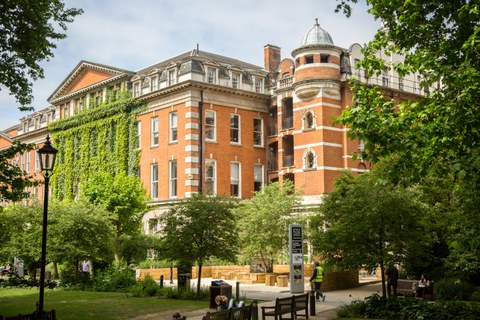
King's College London
The faculty of Medicine has founded the first European transCampus together with the Faculty of Life Science and Medicine at King's College London. Researchers from the two universities work together in a cross-border network and can thus make better use of each other's resources. There is also a cooperation in the form of the two Research Training Groups IRTG 2251, for research into "Immunological and Cellular Strategies in Metabolic Disease" and IRTG 2773, for research into "Risk Factors and Pathomechanisms of Affective Disorders".
Life in London
© kingscollegelondon
London is the largest metropolis in Europe and has a wide range of outstanding research institutions as well as a colorful cultural offering. All the important information about a stay in London can be found on the official Visit London website.
The newest Economist ranking compares the cost of living in London in the year of 2020 to that of Frankfurt (Main). The London School of Economics advises its future students to calculate about £1100 - £1300 per months to cover all expenses.
London is one of the world's most visited cities, which is due to the rich diversity in cultural and sports events. Throughout the year, exciting events take place in museums, parks but also in very extraordinary locations and all of them are announced in the city's event calendar. Major international sports tournaments in disciplines like soccer, tennis or rugby also take place all year round and are enlisted here. For those who would like to get to know London far for the popular sites, some of these hidden gemsmay be just right.
London's public transport is characterized by a large network of different means of transport, such as the world-famous Tube (subway) or even the double-decker buses. The whole variety of means of transport can be found here and current prices and connections can be found at any time on the official website of the local transport association Transport for London.
United Kingdom
| Birmingham | 178 km |
| Bristol | 198 km |
| Liverpool | 310 km |
| Glasgow | 582 km |
International
| Berlin | 1089 km |
| Moskow | 3055 km |
| Beijing | 9409 km |
| Saõ Paulo | 9056 km |
Flinders University
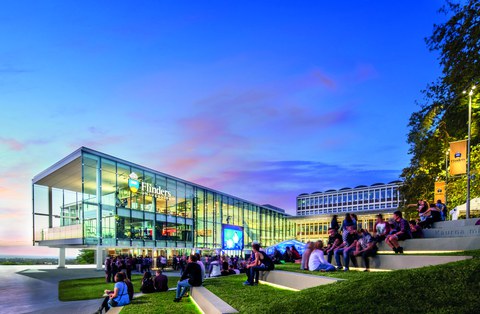
Flinders University Hub
With the Flinders Health and Medical Research Institute (FHMRI), Flinders University offers ideal conditions for scientists and students. For over 50 years, world-leading experts have been working on innovative projects and synergies between the latest findings and technologies.
Life in Adelaide
© Flinders University
Adelaide is the capital of the state of South Australia and is one of the top 5 most popular cities in Australia. The city offers a diverse research landscape, including four universities and the South Australian Health and Medical Research Institute.
The costs of living are slightly higher than in Dresden.
Adelaide is located on the south coast of Australia and offers many different leisure activities. Trendy cafes and historic churches dominate the cityscape, whereas the surrounding Adelaide Hills and the Barossa Valley are a paradise for wine lovers. The Fleurieu Peninsula, located in the south of Adelaide, is the best place to spend a day at the beach and also offers various opportunities for sporting activities such as surfing and diving.
Commuting within and outside Adelaide is relatively easy thanks to the variety of public transport offered, such as streetcar, bus, train or cab. The 'Adelaide Metro' system includes all streetcars, buses and trains. You can choose between one-way trips or the 'MetroCard'.
Australia:
-
Melbourne, Victoria: 730 km (1 h flight)
-
Canberra, Australian Capital Territory: 1200 km (1,5 h flight)
-
Sydney, New South Wales: 1400 km (2 h flight)
-
Alice Springs, Northern Territory: 1500 km (2 h flight)
-
Brisbane, Queensland: 2000 km (2,5 h flight)
-
Perth, Western Australia: 2700 km (3,5 h flight)
International:
-
Auckland, New Zealand: 4,25 h flight
-
Bali, Indonesia: 5 h flight
Adelaide has a Mediterranean climate with warm, dry summers (December to February, average maximum temperature 29°C) and mild winters (June to August, average maximum temperature 15°C).
Shinshu University
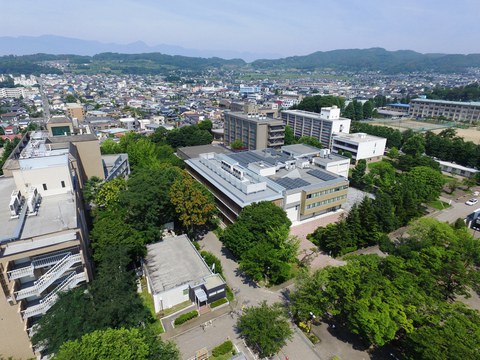
Shinshu University School Of Medicine
With Shinshu University School Of Medicine , we have gained a partner in cutting-edge medicine. Together with the university hospital, it is part of Shinshu University. The university hospital also conducts clinical research and, as a teaching hospital, trains the next generation of medical professionals.
Life in Matsumoto
An Introduction to Shinshu University © shinshuweb
Matsumoto is the second largest city in Nagano Prefecture and is located in the center of the main island of Japan. In addition to the city's rich cultural and historical heritage and close proximity to stunning natural scenery, Shinshu University is a world leader in its commitment to a sustainable society.
The costs of living for students in Matsumoto are around 1000€ - 1400€ per month to cover all expenses.
Matsumoto offers a variety of cultural activities and thus is the perfect place to get deep into Japanese culture. Located in the middle of the Japanese Alps the city is towered by the beautiful castle of Matsumoto. The locals are happy to proudly look back on centuries-old heritage. The cityscape is formed by old trading houses, rustic coffee shops, boutiques, and galleries. A unique collection of art and craftwork is found in the local museums. Numerous hiking trails, ski resorts, and thermal baths invite you for enjoying your free time.
The connection of Matsumoto to surrounding places and cities is very good. By riding the popular Shinkansen express train from nearby Karuizawa, you can travel to almost all parts of Japan as quickly as possible. Especially for travel by train, the Japan Rail Pass is a good choice. With this ticket's help, international tourists can use the national network nearly unlimited. Moreover, a comfortable bus service connects Matsumoto with its region. Finally, Matsumoto Airport is a small commercial airport that offers several national flights.
Japan:
- Nagano: 71 km (0:50 h by train)
- Tokyo: 214 km (2:40 h by train)
- Kyoto: 324 km (3:15 h by train)
- Osaka: 367 km (3:30 h by train)
- Sapporo: 1113 km (13 h by train)
International:
- Seoul, South Korea: 988 km
- Shanghai, China: 1622 km
- Hanoi, Vietnam: 5506 km
- Berlin, Germany: 8788 km
Generally speaking, the weather in Matsumoto is cold and temperate and influenced by ocean climate. During summer temperatures are up to 30°C, in winter it is 5°C. The driest months are from May to October, however, rain falls throughout the year.
ETH/UZH Zurich
Since 2024, there has been an extension of the transCampus with Zurich. The International Research Training Group (IRTG), which will start in 2025, is a high-level research and training program aimed at the international and interdisciplinary training of doctoral students. The IRTG 3019 "Metabolic and Endocrine Drivers of Infection Susceptibility" (MEDIS) is a collaboration between the TUD Dresden University of Technology (TUD), the University of Zurich (UZH) and the Federal Institute of Technology Zurich (ETH). The IRTG MEDIS investigates the complex interactions between metabolic processes and infectious diseases.
The collaboration with the renowned institutions in Zurich will train a new generation of scientists who will shape the future of medical research and care. The IRTG MEDIS provides a unique platform for scientific exchange and innovative research that can have a positive impact on healthcare worldwide.
Life in Zurich
The cost of living in Switzerland is about 20% higher than in Germany. According to ETH Zurich, the monthly cost for students is between CHF 2,000 and 2,500.
Zurich is an exceptional cultural city with a vibrant range of leisure activities. The city offers excellent shopping, sports and leisure facilities as well as a unique and diverse cultural offering. Events organized by internationally renowned institutions such as the Opera House, Schauspielhaus and Tonhalle contribute to the city's high quality of life.
The Zurich Transport Association (ZVV) offers an excellent transport network in the city of Zurich with S-Bahn, streetcar, bus and boat. Students up to the age of 25 benefit from price reductions. Further information can be found on the ZVV website.
Zurich, the largest city in Switzerland and located in the most populous canton, offers excellent transport connections. This means you can quickly reach the surrounding regions and go skiing or hiking in the Alps to escape the hustle and bustle of the city. Zurich is also located in the heart of Europe.
Zurich is located in the temperate climate zone and the four seasons are very distinct. In winter, temperatures occasionally drop below zero, while on hot summer days they can rise to over 30° C.
Contact
If you are interested in establishing a partnership, please contact us.
 © Stephan Wiegand
© Stephan Wiegand
International Collaboration Advisor
NamePeggy Gierschner M.Sc.
currently on parental leave
Send encrypted email via the SecureMail portal (for TUD external users only).
 © Stephan Wiegand
© Stephan Wiegand
International Collaboration Advisor
NamePeggy Gierschner M.Sc.
Currently on parental leave
Send encrypted email via the SecureMail portal (for TUD external users only).



